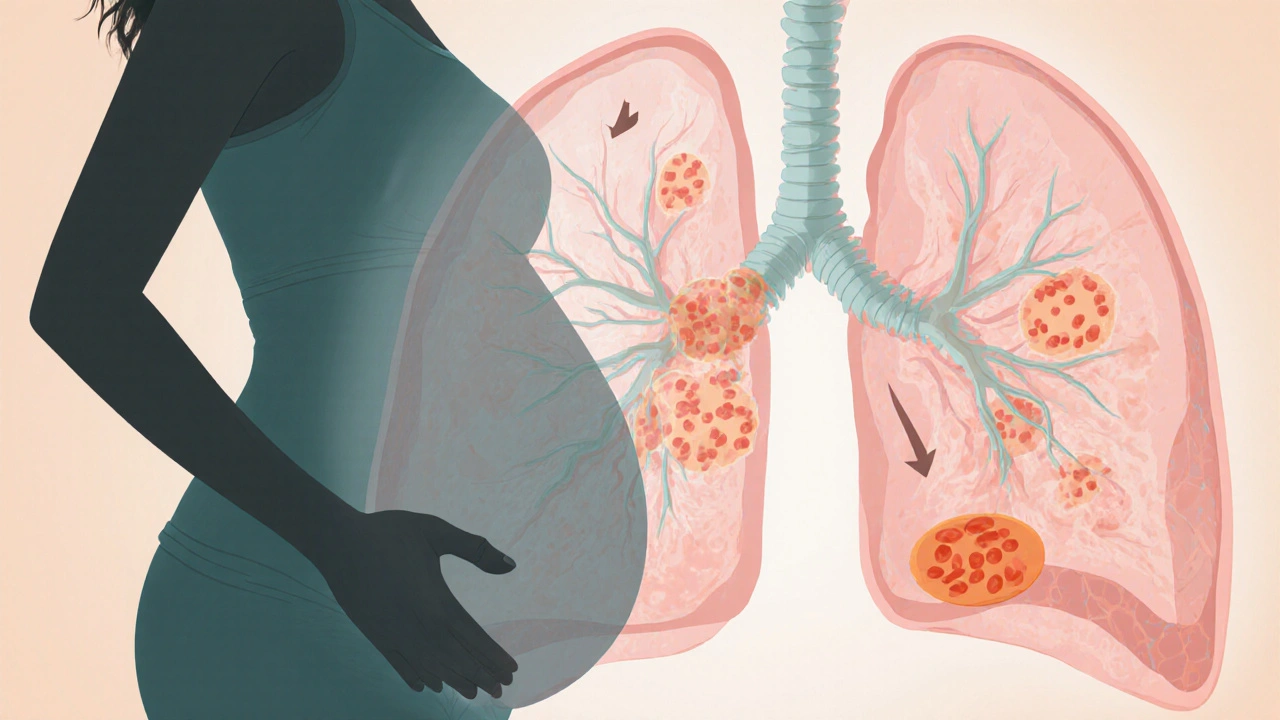Got pneumonia while expecting? It’s scarier than a regular cold, but you don’t have to panic. Knowing the risks, spotting the symptoms early, and getting the right care can keep you and your baby safe.
Pregnancy already puts extra strain on your lungs and heart. When an infection like pneumonia hits, it can lower oxygen levels, which the baby depends on. Studies show pregnant women with pneumonia have a higher chance of pre‑term birth, low birth weight, and, in severe cases, intensive‑care admission.
But it’s not all doom. Most cases are treatable, and early medical attention makes the difference. The key is to recognize the red flags and get proper antibiotics that won’t harm the fetus.
Typical pneumonia symptoms include a persistent cough, fever over 100.4°F (38°C), chills, shortness of breath, and chest pain that gets worse when you breathe deeply. In pregnancy, you might also notice increased fatigue, rapid heartbeat, or a sudden drop in energy that feels out of the ordinary.
If any of these show up, especially a fever that won’t go down, call your doctor right away. Blood tests, a chest X‑ray (shielded for the baby), and sometimes a sputum culture help confirm the diagnosis.Don’t try to self‑medicate with over‑the‑counter cold remedies alone. While acetaminophen can lower fever safely, most cough syrups aren’t recommended without a doctor’s ok.
Once diagnosed, doctors usually prescribe antibiotics that are considered safe in pregnancy, such as amoxicillin or erythromycin. The treatment course typically lasts 7‑10 days, and you’ll be asked to finish it even if you feel better.
Staying hydrated, getting plenty of rest, and using a humidifier can ease breathing discomfort. If you smoke, quit immediately—smoking worsens pneumonia outcomes for both you and the baby.
In severe cases, hospitalization may be necessary to give IV antibiotics and oxygen. The medical team will monitor both your vitals and the baby’s heart rate to make sure oxygen levels stay stable.
After you recover, follow up with your prenatal care provider. They’ll check that the infection didn’t cause any lingering issues and will adjust your prenatal plan if needed.
Bottom line: pneumonia in pregnancy is serious, but with quick diagnosis, safe antibiotics, and supportive care, most women have healthy deliveries. Trust your instincts—if something feels off, get checked out. Your health and your baby’s health are worth the extra attention.

Learn how pneumonia affects pregnant women, spot symptoms early, and use safe vaccines, antibiotics, and lifestyle steps to protect both mother and baby.
read more